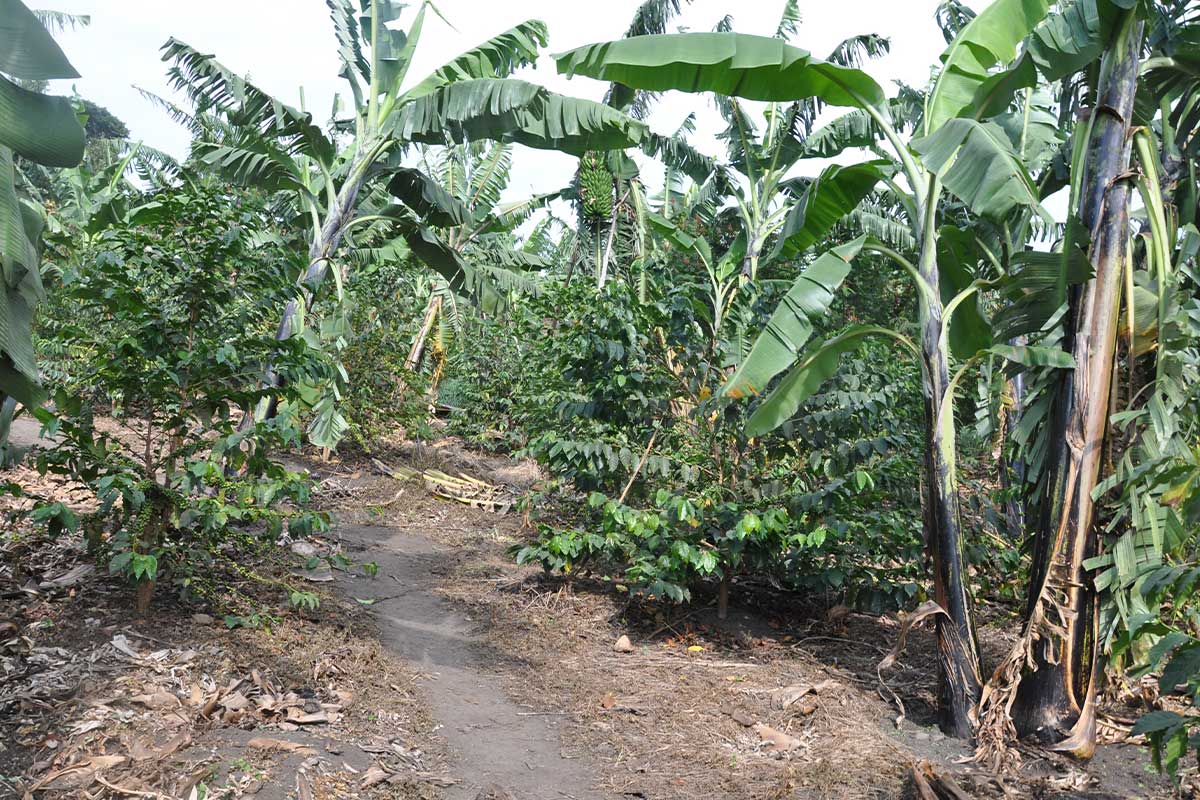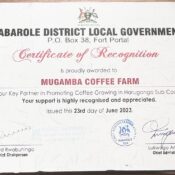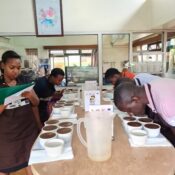Inside The 320-Acre Agritourism Farm Touching Lives of 100 Families

Inside The 320-Acre Agritourism Farm Touching Lives of 100 Families
Farming business is not for the faint-hearted; you must be passionate and determined to overcome setbacks if you are to succeed.
This is a major lesson from Godfrey Kaganda and his wife Shakira Buhura, the proprietors of Mugamba Farm that focuses on organic Arabica coffee growing in Kabarole district. The farm is integrated with bananas/matooke. They are also into cocoa farming and beekeeping.
The 320-acre farm is located in Harugongo village, Mugamba Sub-County, Kabarole district, at the boundary of Semliki Wildlife Reserve in the Western Rift Valley, offering visitors stunning views of the savanna plains in the wildlife reserve.
Semliki Wildlife Reserve is popularly known for birds and boasts 440 bird species.
The coffee journey starts
It has not been a smooth journey for the Kagandas. It was in 2013 when they bought the 320 acres of land to set up a modern farm.
Kaganda says they started by planting eucalyptus.
“We planted 150,000 trees of eucalyptus,” Kaganda revealed as his wife looked on.
He was narrating his story to the Uganda Coffee Development Authority (UCDA) Board Members and top management that visited Mugamba Farm on Friday March 11, 2022.
The UCDA team was in the Rwenzori region to appraise and evaluate the performance of the Authority’s field activities.
Besides eucalyptus, Kaganda says he planted matooke, but got an idea along the way to have something that could last for generations.
“We thought about coffee but we didn’t have enough knowledge about it. Whatever coffee (type) we saw, we thought it would work here.
In 2007, we went to visit our friend in Wakiso; he had very good coffee and we thought it would work here. We bought 5,000 Clonal plantlets (Robusta) from him and planted them here,” Kaganda revealed.
“Eight months down the road, nothing was coming up and it was too dry. We ferried in water and used waste plastic bottles to irrigate the coffee, but it wasn’t growing well. On the other hand, matooke was doing very well. That’s when we realized that we had planted the wrong type of coffee,” he added.
Kaganda started making research on why the coffee was not performing as expected and that is how he got to know about UCDA.
“A friend referred me to UCDA. I looked for them (UCDA technical people) and brought them here. When they measured the altitude, they told me that this altitude (1,700 feet above sea level) is for Arabica not Robusta,” he said.
Having learnt the hard way, Kaganda didn’t give up. He composed himself and started afresh.
“We had to start afresh. That’s how our journey started; we knocked ourselves, fell on the ground and stood up, dusted ourselves and moved on. We said there’s no time to waste; we had already wasted 8 months, so we set to roll out in a big way with support from UCDA,” Kaganda revealed.
He said they started cutting off eucalyptus trees in 2017 and replacing it with coffee. They continue to cut the eucalyptus up-to-date.
“We have so far planted 130 acres of Arabica coffee but many of the trees are yet to be productive,” Kaganda told Business Focus.
Read More
Source:Business Focus
+256 772 208 500
info@mugmbafarm.com




